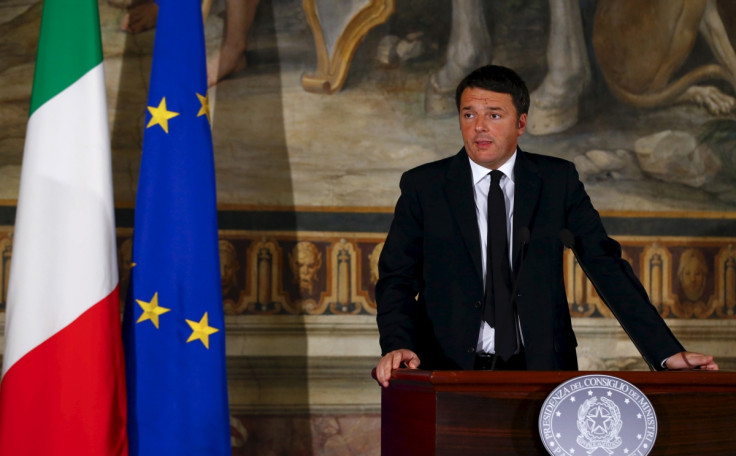Italian pensioner commits suicide as government saves his bank but not his savings

The case of a pensioner who committed suicide after losing all his savings in a government operation to salvage his collapsing bank has caused outrage in Italy. Luigino D'Angelo hung himself after the €110,000 (£79,000, $120,000) he had put aside during a lifetime evaporated overnight with the approval of a government decree to save four small banks from bankruptcy.
In a letter to his wife of 51 years, Lidia, who found the body at the couple's home in Civitavecchia, near Rome, the 68-year-old explained he felt humiliated and swindled by his the bank, the Banca Etruria.
"He couldn't stand the idea he had been fooled after months of trying to save what he could," she told La Stampa newspaper. I don't know what I will do without him ... I hope his gesture hits and sinks someone. Someone has to pay," she added, blaming the government for signing the decree that "destroyed" her husband's life.
The Banca Etruria was one of four small financial institutes that ran into trouble in recent years, forcing the government to rush through a rescue deal in November.
As part of the operation each of the four banks was split in two parts. Healthy assets were conveyed in so-called "good banks" while all outstanding credits and non-performing loans were put together to form separate "bad banks".
Under the watch of the Bank of Italy all other Italian financial institutions also put together €3.6bn (£2.5bn) to cover losses, restructure and recapitalize Banca Etruria, Banca Marche, CariFerrari and CariChieti.
Critically to D'Angelo, however, the decree also wrote off all the banks' subordinated bonds, high-risk debt products that subordinate their holders' right to get repaid to that of higher-ranked creditors in case of default.
Because of these instruments' high returns, subordinated bonds were quite popular with small savers, including D'Angelo, who had reportedly been persuaded to invest all his money in those provided by Banca Etruria, of which he had been a client for 50 years.
Earlier this year, as the bank started showing signs of instability, he repeatedly tried to recuperate part of his savings but was rebuked with different excuses, his wife said. Some employees even reassured him everything was fine, she claimed.
A week after the government sealed the deal that signalled the end of his hopes to recover the money, D'Angelo, a former worker for energy giant Enel, committed suicide. Up to 50,000 other small investors who had savings with Banca Etruria are believed to have lost an average of €15,000 (£10,800) each in the salvaging operation.
The EU commissioner for Financial Services, Lord Jonathan Hill, told Ansa news agency the four banks were "selling to the public inadequate products".
Consumer association Codacons has urged authorities to open a criminal investigation for incitement to suicide. Right-wing populist leader Matteo Salvini called for the head of the Bank of Italy to step down and described D'Angelo's death as "suicide by state".
Prime Minister Matteo Renzi sent his condolences to the late pensioner's family but defended his government's move, saying it protected thousands of jobs and the savings of many other people who would have also lost everything if the banks were allowed to fail.
"The government intervened when it saw that four banks were at risk of closure, putting thousands of jobs as well as taxpayers money also at risk," he said, adding that under current EU rules it was impossible to save all investors.
The Samaritans provides a free support service for those who need to talk to someone. It can be contacted through Samaritans.org or on 08457 90 90 90, 24 hours a day, 365 days a year. Call charges apply.
© Copyright IBTimes 2025. All rights reserved.






















